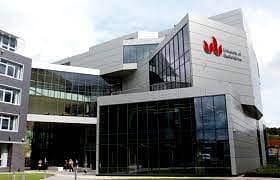Year 1 will give you the skills to study specialist technology topics later in the course. These include Introduction to Software. You will explore the principles of hardware and how computers are built. How computers work with databases and you’ll get an introduction into Structured Query Language (noSQL).
You will also learn about software applications and hardware installation, configuration and maintenance. This will include software such as Microsoft, Oracle and Java.
In year two you will be focusing on how software is designed and developed to work on different devices. You will also be considering how software and hardware can work together, how to develop systems secure by design and the approaches that can be used to test software.
Your final year will include independent learning through project work. During this time you will strengthen your project management skills. You will focus on research methods and emerging technologies.
Throughout the course you will benefit from work based learning projects which will prepare you to graduate as a professional.
Why choose this course?
- This course is aimed at providing practical and hands-on experience of developing IT systems.
- This will focus on many areas of technology and how they can be deployed to provide systems that can held support organisations achieve their overall business objectives.
- You will learn how to interact with non-IT specialists to deliver IT solutions tat support a wide range of business functions.
- Specifically, you will develop the knowledge and skills to draw out user requirements from non-IT experts and transform these into system level designs that can then be implemented.
- You will learn how to lead IT project, as well as the skills needed to perform effectively within a multi-faceted scheme.
Unit Information - What will I learn?
Units
- Computer Systems Structure (CIS017-1) Compulsory
- Fundamentals Of Computer Science (CIS091-1) Compulsory
- Introduction To Software Development (CIS020-1) Compulsory
- Principles Of Programming (CIS016-1) Compulsory
- Information Technology Employability Project (CIS119-2) Compulsory
- Systems Development And Modern Database Practices (CIS020-2) Compulsory
- User Experience Design (CIS120-2) Compulsory
- Web Technologies And Platforms (CIS051-2) Compulsory
- Advanced Information Technology (CIS041-3) Compulsory
- Agile Project Management (CIS047-3) Compulsory
- Information Technology Undergraduate Project (CIS054-3) Compulsory
How will I be assessed?
You are assessed in a variety of ways. The majority of units are assessed through coursework, group and individual projects, portfolios, essays, presentations or exams. You will also produce software artefacts in the area of your specialism. Constant feedback and advice from a supervisory or unit team will be provided to support you in your work. At level 4 you are assessed on your understanding of the fundamental concepts of Computer Science and its application.
You are required to comprehend the basic range of intellectual concepts which form the foundations of the subject and application area, and will be assessed on your ability to articulate such concepts in a coherent manner, in a variety of written assessments/written briefs. For example, there will be time constraint programming assignments as well as multiple choice tests. At level 5 you are assessed on your ability to apply the basic concepts of the disciplines introduced in level 4 to existing controversies and issues on which there is already a body of research and critical opinion. You also should be able to demonstrate the inter-relationships between critical theory and practice. For example, the units `User Experience Design and Web Technologies will further your understanding of key aspects of IT systems. At level 6 you will be required to demonstrate independent thinking and initiative. This may be in the form of analysing and criticising current approaches and theory within Information Technology in general and software use and development in particular.
In all cases, you will be expected to show an awareness of the major theories and practices of the discipline. You will progress from well-defined briefs to more open-ended and challenging assessments, which culminate in the honours project where you will be given freedom to choose your area of work within the constraints of the subject discipline.
